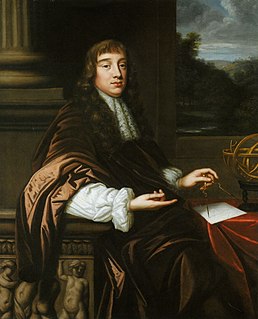A Quote by Edward Gibbon
The progress of manufactures and commerce insensibly collects a large multitude within the walls of a city: but these citizens are no longer soldiers; and the arts which adorn and improve the state of civil society, corrupt the habits of the military life.
Related Quotes
Do you know what Agelisas said, when he was asked why the great city of Lacedomonie was not girded with walls? Because, pointing out the inhabitants and citizens of the city, so expert in military discipline and so strong and well armed: "Here," he said, "are the walls of the city," meaning that there is no wall but of bones, and that towns and cities can have no more secure nor stronger wall than the virtue of their citizens and inhabitants.
To revolt within society in order to make it a little better, to bring about certain reforms, is like the revolt of prisoners to improve their life within the prison walls; and such revolt is no revolt at all, it is just mutiny. Do you see the difference? Revolt within society is like the mutiny of prisoners who want better food, better treatment within the prison; but revolt born of understanding is an individual breaking away from society, and that is creative revolution.
The beginning of civilisation is the discovery of some useful arts, by which men acquire property, comforts, or luxuries. The necessity or desire of preserving them leads to laws and social institutions. The discovery of peculiar arts gives superiority to particular nations ... to subjugate other nations, who learn their arts, and ultimately adopt their manners;- so that in reality the origin as well as the progress and improvement of civil society is founded in mechanical and chemical inventions.
In on summer they have done their business... they have completely pulled down to the ground their monarchy, their church, their nobility, their law, their revenue, their army, their navy, their commerce, their arts, and their manufactures... destroyed all balances and counterpoises which serve to fix a state and give it steady direction, and then they melted down the whole into one incongrous mass of mob and democracy... the people, along with their political servitude, have thrown off the yoke of law and morals.
What I call middle-class society is any society that becomes rigidified in predetermined forms, forbidding all evolution, all gains, all progress, all discovery. I call middle-class a closed society in which life has no taste, in which the air is tainted, in which ideas and men are corrupt. And I think that a man who takes a stand against this death is in a sense a revolutionary.
[T]here are, at bottom, basically two ways to order social affairs, Coercively, through the mechanisms of the state - what we can call political society. And voluntarily, through the private interaction of individuals and associations - what we can call civil society. ... In a civil society, you make the decision. In a political society, someone else does. ... Civil society is based on reason, eloquence, and persuasion, which is to say voluntarism. Political society, on the other hand, is based on force.
I've spoken of the shining city all my political life, but I don't know if I ever quite communicated what I saw when I said it. But in my mind it was a tall, proud city built on rocks stronger than oceans, windswept, God-blessed, and teeming with people of all kinds living in harmony and peace; a city with free ports that hummed with commerce and creativity. And if there had to be city walls, the walls had doors and the doors were open to anyone with the will and heart to get there. That's how I saw it, and see it still.
For the power given to Congress by the Constitution does not extend to the internal regulation of the commerce of a State (that is to say, of the commerce between citizen and citizen,) which remain exclusively with its own legislature; but to its external commerce only, that is to say, its commerce with another State, or with foreign nations, or with the Indian tribes.
Where are these rational practices to be taught and acquired? Not within the four walls of a bare building, in which formality predominates... But in the nursery, play-ground, fields, gardens, workshops, manufactures, museums and class-rooms. ...The facts collected from all these sources will be concentrated, explained, discussed, made obvious to all, and shown in their direct application to practice in all the business of life.
From the accession of Henry the Seventh to the breaking out of the civil wars, England enjoyed much greater exemption from war, foreign and domestic, than for a long period before, and during the controversy between the houses of York and Lancaster. These years of peace were favorable to commerce and the arts. Commerce and the arts augmented general and individual knowledge; and knowledge is the only fountain, both of the love and the principles of human liberty.
When we speak of the origin of western democracy it's precisely here, in this territory that the modern definition of democracy first emerged in city/states known now as Greece. This was coming from a society in which 30 thousand citizens had rights and 300 thousand were slaves and citizens without rights that lived in this territory. So that was the concept of western democracy; some citizens had the prerogative of exerting their civil and political rights while the others had none.







































